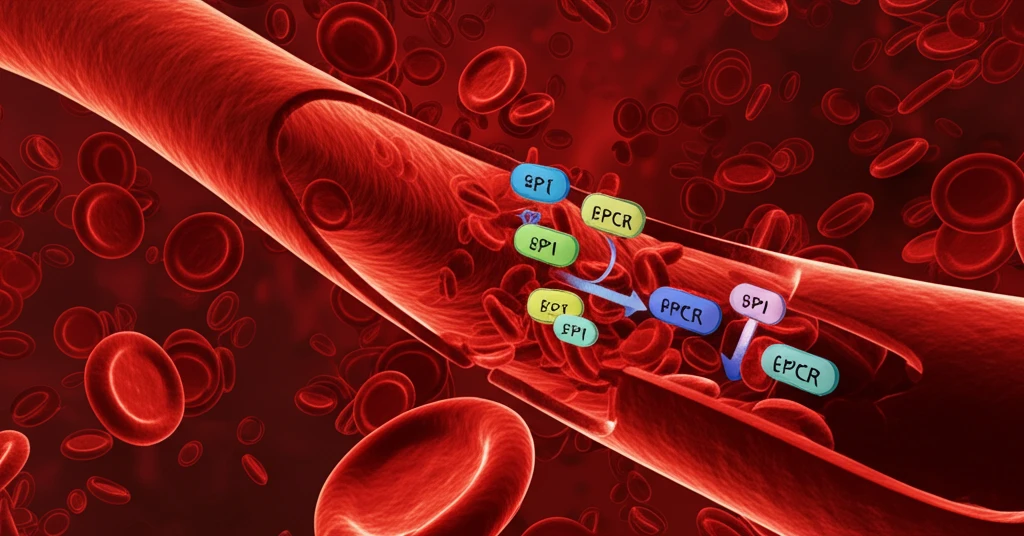
Unlocking Cardiovascular Health: How Resistin Impacts Your Body
"New Research Reveals Resistin's Role in Blood Clotting and Endothelial Function"
Cardiovascular diseases remain the leading cause of death globally, highlighting the critical need to understand the underlying factors contributing to these conditions. Among the key players in cardiovascular health is the vascular endothelium, the inner lining of blood vessels. Endothelial cells maintain a delicate balance between pro-coagulant and anti-coagulant processes, as well as inflammatory responses. Dysfunction in these cells can disrupt this balance, leading to thrombosis and coagulation issues.
One of the protective mechanisms of endothelial cells is the formation of activated protein C (APC), a crucial regulator of blood coagulation. APC is formed through a complex involving thrombin, thrombomodulin, and endothelial protein C receptor (EPCR). This complex helps to deactivate coagulation cascade factors, preventing excessive clotting and maintaining vascular health. Disruptions in this process can have significant consequences, underscoring the importance of understanding the factors that influence APC formation.
Emerging research has focused on resistin, an adipocyte-secreted hormone associated with obesity and insulin resistance, and its potential impact on cardiovascular health. While murine resistin is primarily expressed by adipocytes, its human counterpart is found predominantly in peripheral blood mononuclear cells and macrophages. Studies have shown that resistin can increase vascular adhesion molecules and promote monolayer permeability in endothelial cells. Recent findings now reveal a new role for resistin in disturbing APC formation, shedding light on its broader implications for cardiovascular health.
Resistin's Impact on Protein C Activation and EPCR Suppression

A recent study investigated the effects of resistin on thrombin-induced protein C activation in endothelial cells. The findings revealed that resistin suppresses this activation, indicating a potential disruption in the body's natural anticoagulant processes. Further analysis showed that resistin treatment leads to a reduction in EPCR expression, while thrombomodulin (TM) levels remain unaffected. This suggests that resistin specifically targets EPCR, a key component in the APC formation complex.
- Resistin suppresses thrombin-induced protein C activation.
- Resistin reduces EPCR expression but does not affect thrombomodulin levels.
- Resistin induces SP1 expression.
- Increased SP1 expression downregulates EPCR.
Implications and Future Directions
The discovery of resistin's role in disturbing APC formation opens new avenues for understanding and addressing cardiovascular risks associated with obesity and insulin resistance. By identifying the SP1-EPCR pathway as a key mediator of resistin's effects, researchers can explore targeted interventions to restore proper endothelial function and prevent thrombotic events. Further studies are needed to fully elucidate the clinical implications of these findings and develop effective strategies to mitigate the adverse cardiovascular effects of resistin.
